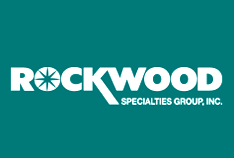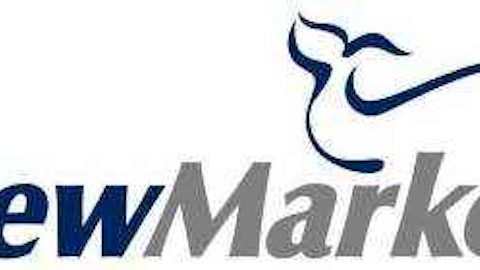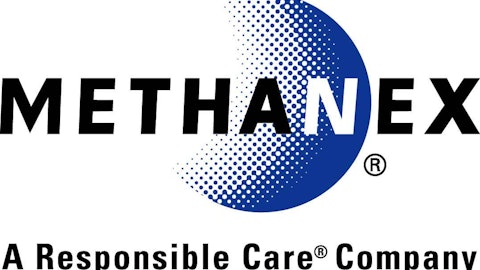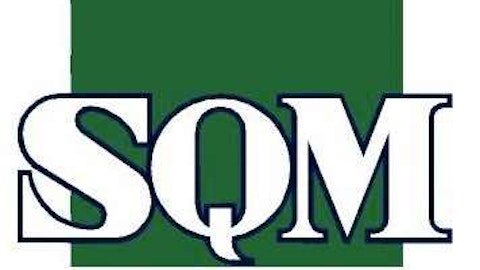Rockwood Holdings, Inc. (NYSE:ROC) is a global producer of specialty chemicals and advanced materials, with diverse end markets that include the automotive, medical, construction, and electronics industries.
Rockwood Holdings, Inc. (NYSE:ROC) has carved out an enviable position in several attractive chemical and materials markets, most notably lithium and advanced ceramics. Rockwood’s portfolio includes more than just lithium and ceramics, and many of the company’s commodity line products face fierce competition.

SQM, a Chilean chemical and mining company, is the world’s largest producer of potassium nitrate, iodine, and lithium. Sociedad Quimica y Minera (ADR) (NYSE:SQM) generated more than 85% of revenue outside of Chile in 2012. The company aims to maintain its industry-leading positions in specialty fertilizers, iodine, and lithium, while also grabbing a larger share of the global potash market.
SQM has continued to benefit from a growing lithium market, as devices that use lithium-ion rechargeable batteries make their way into the hands of more people around the globe. The company’s lithium operations increased sales 12% compared with the prior-year quarter. For the full year, sales increased 21%, driven by gains in both volume and price. I expect further volume gains in lithium as the company expands production to meet increased demand. SQM’s unique mineral assets in Chile allow the company to produce lithium and other chemicals at a low cost. As such, I think the company has a narrow economic moat.
Selling the Ceramics Business
Rockwood Holdings, Inc. (NYSE:ROC) has announced a plan to sell its ceramics business to a European private equity firm for roughly $2 billion. This doesn’t come as a big surprise, as management has previously said the ceramics business would be available at the right price. In 2012, the business generated EBITDA of $175 million, implying a purchase multiple of roughly 11 times. Management has signaled multiple times that it is looking to streamline its product offerings and focus more on lithium and surface treatment products. This transaction is a step in that direction, with the sale of the firm’s titanium dioxide arm as the next likely move.
First Quarter Results
Rockwood Holdings, Inc. (NYSE:ROC) holds a diverse portfolio of chemical and material businesses and performance was mixed across segments. On the positive side, the firm’s lithium business continued to post consistent and solid results. Leveraging key assets in the Atacama Desert of Chile, Rockwood enjoys a low-cost base for its lithium production. Lithium sales advanced 3.3% year over year, and adjusted EBITDA margin improved to 39.6% compared with 38.7% in the first quarter of 2012.
On the negative side of the ledger was Rockwood’s titanium dioxide business. Sales in the segment increased 21.3% year over year on higher volumes from recently acquired capacity, but profitability plummeted. TiO2-adjusted EBITDA margin came in at 3.1% compared with 33.6% in the prior-year period, as lower prices and capacity utilization decimated profitability.
In Tio2 Rockwood is facing another competitor: Tronox Ltd (NYSE:TROX). Tronox is a global leader in the production and marketing of titanium-bearing mineral sands and titanium dioxide pigment. It produces both the pigment and the raw material needed for production. Any turnaround would benefit both businesses greatly. The company might also be the most active in any industry consolidation. A significant purchase of assets on the pigment production side would help magnify the benefits of the company’s integration strategy.
In the first quarter Tronox Ltd (NYSE:TROX) posted some strong results, with revenue of $470 million, adjusted EBITDA of $73 million, and a margin of 15.5%. In the first quarter, 69 percent of titanium feedstock revenue was derived from intercompany sales, up from 59% in the fourth quarter 2012. Tronox also reported bigger sequential jumps of 23% in its TiO2 sales volume during their most recent quarter.
Positive points:
1). Rockwood’s raw-material costs are mostly inorganic, with limited exposure to oil and natural gas prices. The firm also has low raw-material concentration, with no single input representing more than 3% of cost of goods sold in 2010.
2). The company has wide geographic, customer, and end-market bases. End markets for the firm’s products run the gamut, from construction to life sciences.
3). The company’s advanced ceramics are hard, noncorrosive, and heat-resistant, making the products ideal for complex electrical systems in the automotive and aerospace industries.
4). Rockwood’s titanium dioxide segment focuses on anatase products, which are sold to specialty customers in the synthetic fiber, food, and pharmaceutical industries. Many of Rockwood’s competitors focus on more commodity like rutile titanium dioxide.
Negative Points:
1). Significant market penetration of hybrid vehicles is still years away. Moreover, alternatives to lithium ion battery technology could be discovered by the time meaningful penetration occurs.
2). Many of Rockwood’s products are tied to the fortunes of highly cyclical industries. For example, sales suffered in 2009 with weakness in the automotive and construction industries.
3). As lithium demand grows, competitors will seek out new sources of lithium. Capacity additions bring the threat of oversupply.
Conclusion
Rockwood carries a significant amount of long-term debt. The cyclical nature of its cash flows could cause the firm to break its financial covenants or lead to an inability to pay debt obligations. Rockwood’s results depend on the health of its end markets. Downturns in the industrial and consumer sectors damage the company’s cash flows. Rockwood operates in 23 countries and is exposed to currency fluctuations that affect financial results and thus its covenant measures. The company also is exposed to raw-material and energy cost fluctuations. Finally, the chemical industry is highly competitive, and barriers to entry are low for some of the firm’s businesses.
Ahsan Aslam Khan has no position in any stocks mentioned. The Motley Fool recommends Sociedad Quimica y Minera (ADR). The Motley Fool owns shares of Rockwood Holdings.
The article Will Selling its Ceramics Business Save Rockwood’s Lithium Business? originally appeared on Fool.com and is written by Ahsan Aslam Khan.
Ahsan is a member of The Motley Fool Blog Network — entries represent the personal opinion of the blogger and are not formally edited.
Copyright © 1995 – 2013 The Motley Fool, LLC. All rights reserved. The Motley Fool has a disclosure policy.




